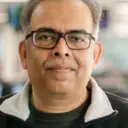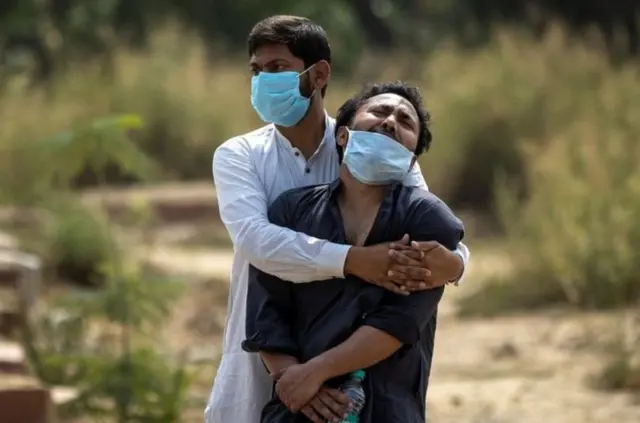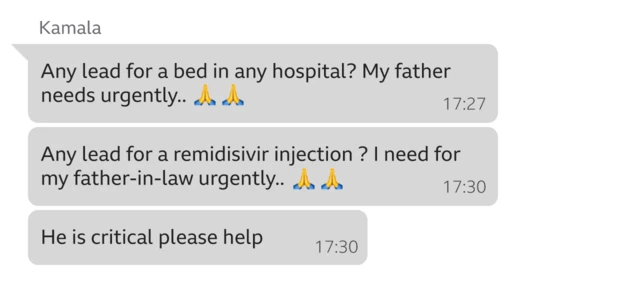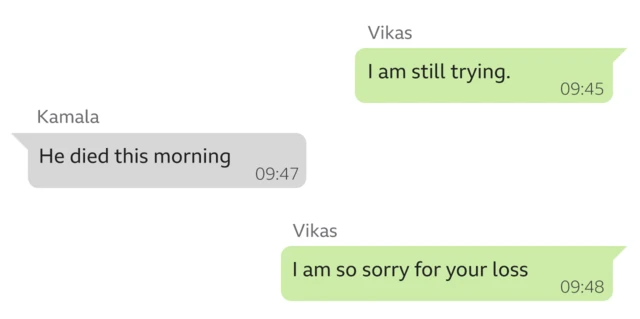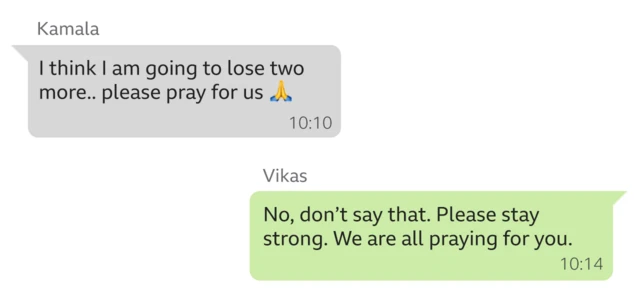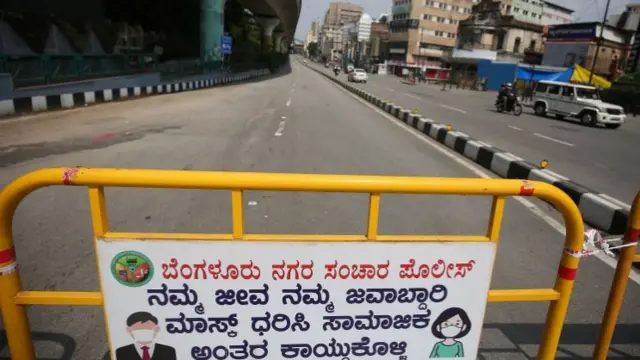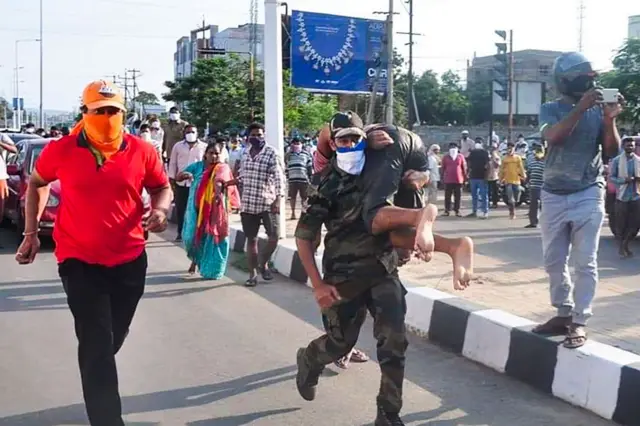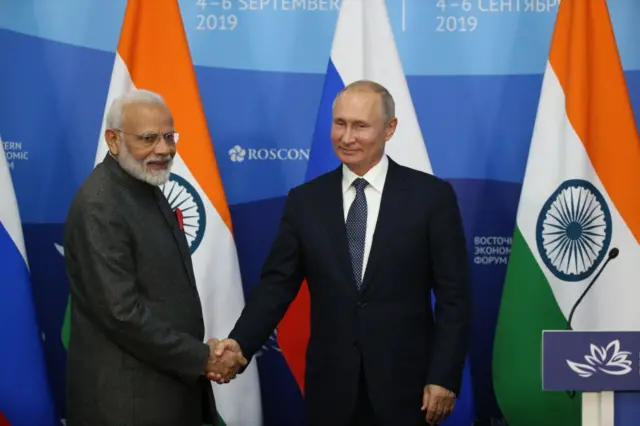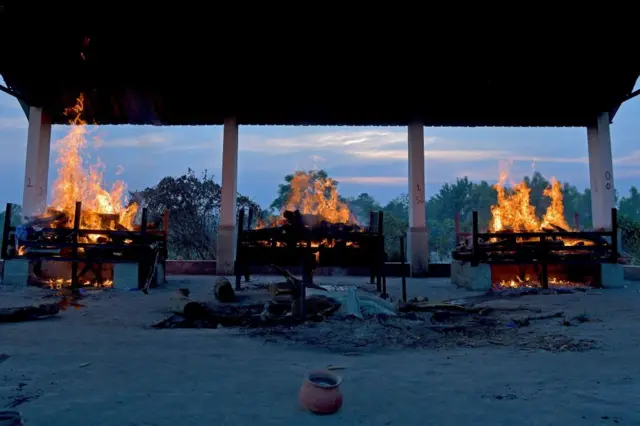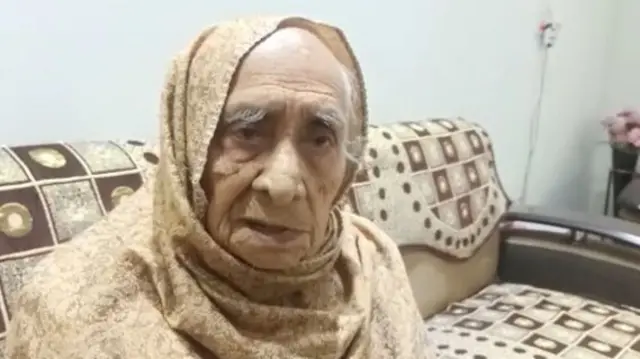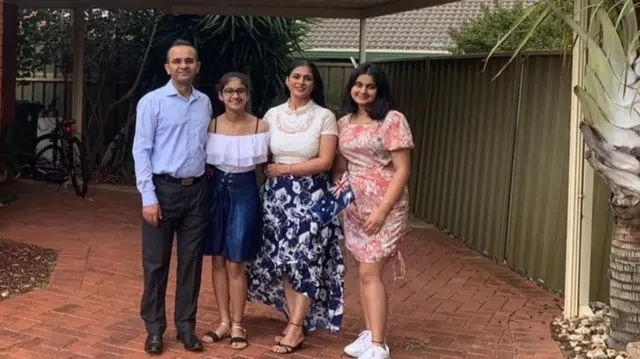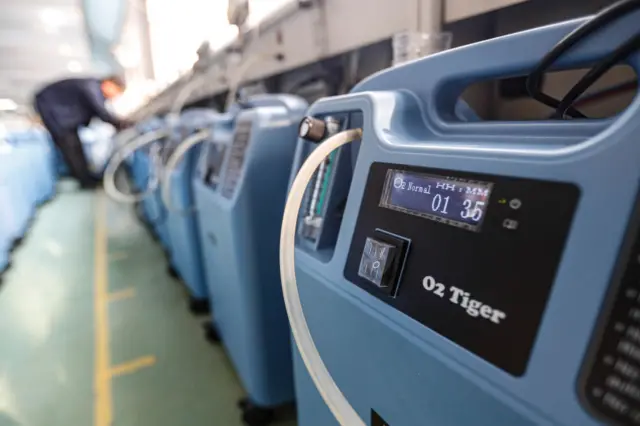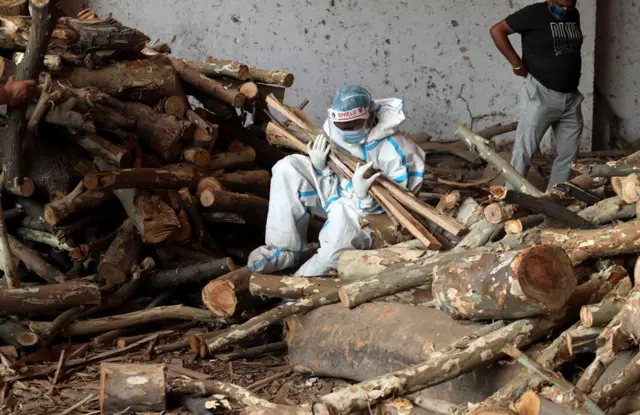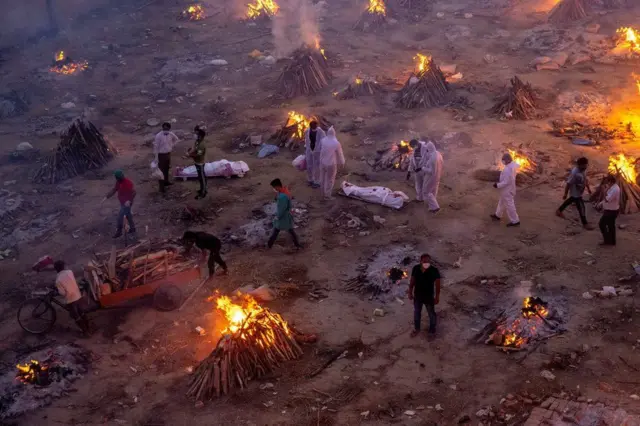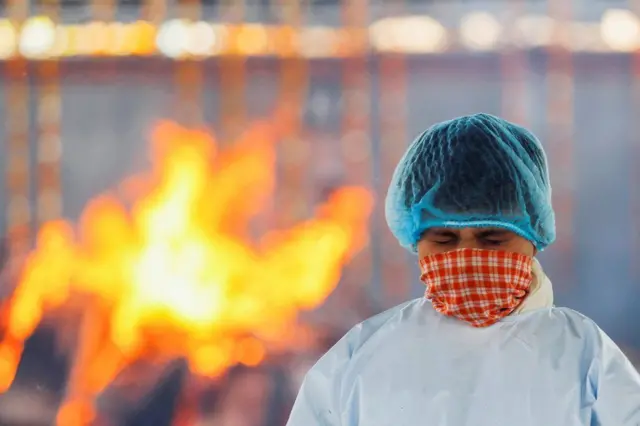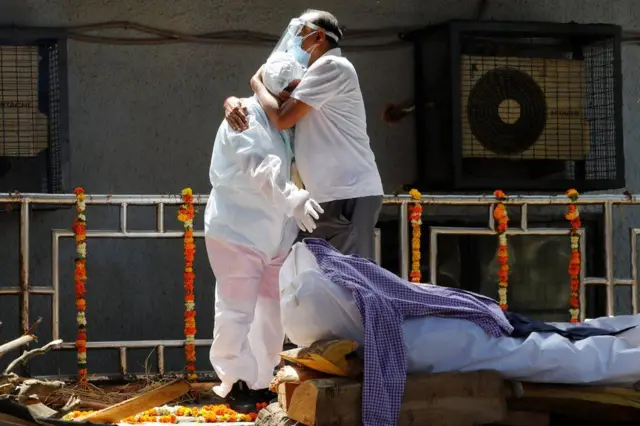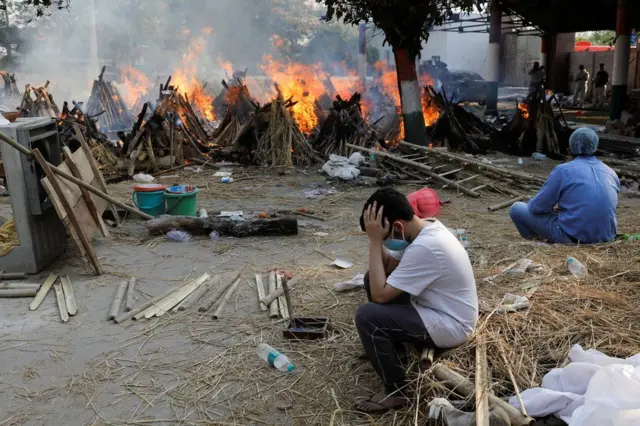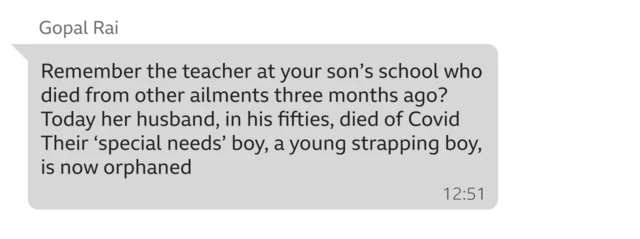Man charged over oxygen SOS for dying grandfatherpublished at 16:30 BST 28 April 2021
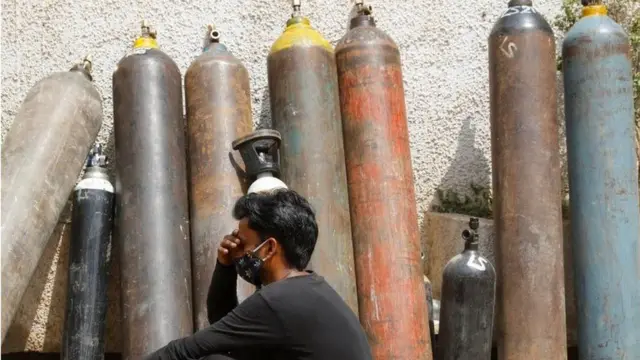 Image source, Reuters
Image source, ReutersAcross India demand for medical oxygen has surged during the crisis (file photo)
Police in India are prosecuting a man who used Twitter to try to find oxygen for his dying grandfather.
Officers in Uttar Pradesh state charged Shashank Yadav with spreading a rumour over oxygen shortages "with intent to cause... fear or alarm".
Mr Yadav, who did not refer to Covid in his brief tweet, could face jail.
Uttar Pradesh is among India's worst-hit states. Its chief minister, Yogi Adityanath, is accused of downplaying the severity of the coronavirus crisis.
Earlier this week, Mr Adityanath, a right-wing ally of Prime Minister Narendra Modi, demanded that the property of anyone spreading rumours and propaganda be seized.
He also said that none of the state's hospitals lacked oxygen, although scenes have unfolded of an overwhelmed health system.
